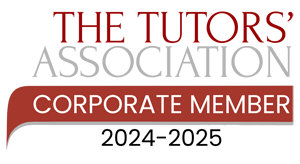What are Pronouns?
Pronouns are special words that replace nouns in sentences. They help us avoid saying the same nouns repeatedly. For example, instead of saying 'Sarah likes ice cream. Sarah goes to the shop to buy ice cream,' we can say 'Sarah likes ice cream. She goes to the shop to buy it.
Types of Pronouns
1. Personal Pronouns
Personal pronouns refer to specific people or things. Here are some examples:
- I: Used when the speaker is talking about themselves.
- You: Used when talking directly to someone.
- He: Used for a male person.
- She: Used for a female person.
- It: Used for objects or animals.
- We: Used when the speaker includes themselves and others.
- They: Used when referring to multiple people or things.
2. Possessive Pronouns
Possessive pronouns show ownership. For example:
- Mine: The toy is mine.
- Your: Is this book yours?
- His: That jacket is his.
- Hers: The red car is hers.
- Its: The cat licked its paw.
- Ours: This playground is ours.
- Theirs: Those bikes are theirs.
3. Reflexive Pronouns
Reflexive pronouns refer back to the subject of the sentence. For instance:
- Myself: I made the cake myself.
- Yourself: You need to believe in yourself.
- Himself: He looked at himself in the mirror.
- Herself: She taught herself to play the piano.
- Itself: The cat cleaned itself.
- Ourselves: We enjoyed ourselves at the party.
- Yourself: You should take care of yourself.
- Themselves: They completed the project themselves.
4. Demonstrative Pronouns
Demonstrative pronouns point to specific things. Examples include:
- This: This is my favorite book.
- That: That was a great movie.
- These: These are my friends.
- Those: Those were the best days.
5. Interrogative Pronouns
Interrogative pronouns are used to ask questions. For example:
- Who: Who is your best friend?
- Whom: To whom did you give the gift?
- Whose: Whose book is this?
- What: What is your favorite color?
- Which: Which game do you want to play?
6. Indefinite Pronouns
Indefinite pronouns refer to non-specific people or things. Examples include:
- Someone: Someone left their bag here.
- Anyone: Is anyone home?
- Everyone: Everyone enjoyed the concert.
- Something: I need something to eat.
- Anything: Do you have anything to say?
- Everything: Everything is ready for the party.
Why are Pronouns Important?
Pronouns are important because they make our writing clearer and smoother. They help us avoid repeating the same words, which can make sentences sound awkward. For instance, instead of saying 'The dog barks loudly. The dog is friendly,' we can say 'The dog barks loudly. It is friendly.'
Fun Activities to Practice Pronouns
Here are some enjoyable activities to practice using pronouns:
- Pronoun Scavenger Hunt: Explore the classroom, find objects, and write sentences using pronouns to describe them.
- Pronoun Swap: In pairs, take turns reading sentences and swapping out nouns for pronouns.
- Story Time: Read a story and identify all the pronouns used. Discuss why the author chose those pronouns.
Learn More with KwizEd
To deepen your understanding of pronouns and enhance your learning experience, consider using the KwizEd app. By registering and creating an account, you can access interactive activities and quizzes that make learning about pronouns engaging and fun. Start your journey with KwizEd today and improve your skills!
Conclusion
Understanding pronouns is essential for effective communication and writing. With practice, you'll be able to use them confidently in your sentences!


